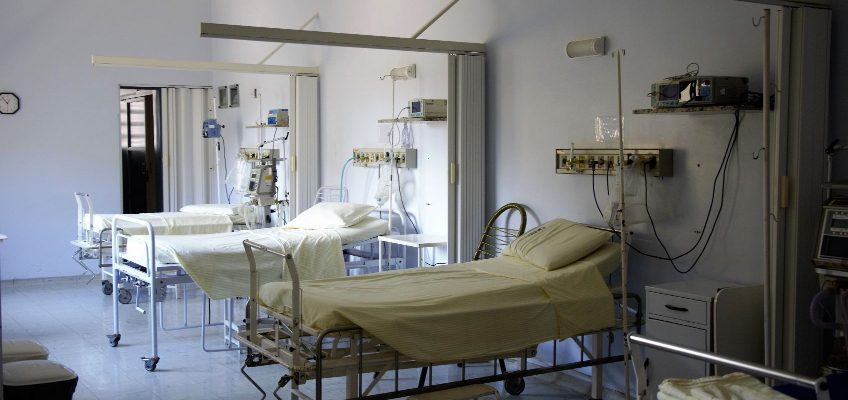Ending up is hospital isn’t ideal when holidaying overseas.
But it can happen and a little advance preparation can help – just in case your trip does involve an impromptu trip to hospital.
A trip to hospital while overseas may not be like anything you’ve ever experienced in Australia. Standards of healthcare differ between countries so lets take a quick tour.
International Healthcare
In Australia, we are fortunate to enjoy a very high standard of public and private healthcare but this is not necessarily the case overseas.
If travelling to Canada or the United States, healthcare standards are comparable to what we enjoy here at home but the costs can be eye-wateringly high.
In some countries such as the UK, Australians can receive free medical treatment at public hospitals thanks to the Reciprocal Healthcare Agreement between our two countries.
Beware if you find yourself in Europe – in some hospitals, nursing care is not provided for the duration of your stay. It is expected that a patient’s family and friends will provide this.
Asia is a mixed bag – the standard of healthcare in Singapore is very high but this is not the case in less developed countries such as Laos. Poor healthcare standards are also found in many African and South American countries.
Also bear in mind that if you are moving away from the cities and spending time in regional areas, the level of healthcare and standard of facilities will be less sophisticated.
As is always the case, it’s important to choose a good quality hospital that has appropriate facilities.
Preparation is key
Before travelling overseas it’s a good idea to research healthcare at your destination. Ideally, find out the identity and location of medical clinics and hospitals close to where you will be located. That way, if you do need to seek urgent medical care, you have an idea of where to go. It also helps if you can identify a clinic and hospital where English is readily spoken to avoid language barriers.
List your emergency contacts
It is important to have details of key contacts available to you either in hard copy or digitally. This includes your next-of-kin and regular GP in Australia. If you find yourself in need of medical treatment, having these details will help if you or the doctor need to clarify your past medical history.
Equally important is your travel insurance provider’s contact details. Your travel insurer will have an emergency assistance team available to you 24 hours a day, seven days a week. This service can be invaluable if you need medical treatment – they can assist with directing you to suitable medical facilities, translating / interpreting and managing your treatment in consultation with the treating doctor and their own medical team. The assistance team can even guarantee payment of costs once your claim has been approved, keep your loved ones updated with information, arrange accommodation and change travel bookings if you are too unwell to travel as planned.
Summarise your medical history
Record your current medications by name, dosage and instructions. Remember that medications may be known by different names overseas. For instance, we typically refer to paracetamol by the brand names Panadol or Panamax. In the US, this medication is often referred to as Tylenol. If possible, find out the brand and generic name/s of the medications you take – this will help ensure your medication regime is understood by the treating doctor.
Also, take a note of your allergens – it may be that you are unconscious or otherwise unable to advise the doctor about your allergies. If you have a drug allergy, this is something that a treating doctor must be aware of prior to administering treatment.
Similarly, a record of past medical treatment including surgeries could provide the treating doctor with valuable information to assist with diagnosis. For instance, if you present with lower right quadrant pain but have previously had your appendix removed, the doctor will want to know this as this information eliminates the potential you are suffering appendicitis.
If you have a serious, chronic and/or life threatening medical condition, it’s a good idea to consider wearing a medical ID bracelet or necklace – this could save the treating doctor valuable time in diagnosing your condition and administering urgent medical treatment.
Last words …
If you do find yourself in hospital overseas, here are a few key things to remember.
- Language difficulties may be experienced if you are travelling in a country where English is not widely spoken. Hospital staff may not speak English at all or only to a certain level. Try to remain calm and respectful to staff.
- Contact your travel insurance provider if you are admitted to hospital or are likely to incur significant medical expenses. For most insurers, this is usually considered to be $2,000 or more. Your travel insurer can help you find suitable medical facilities and if you’ve already been admitted, they can help you with the process and provide valuable support.
- If your travel insurer asks you to sign a medical release form, do this without delay as they need this to discuss your situation with the treating doctor, your regular doctor in Australia and your family. If you don’t sign the release, you are compromising the travel insurer’s ability to help you.
- If possible, seek medical treatment at a public hospital in the first instance. In some countries this will be free of charge and if the hospital doesn’t have the facilities you need, your insurer can then look at the option of moving you to another hospital at their cost.
- If you have to pay the hospital upfront, make sure you get a medical report and retain receipts for expenses. That way, the process of making a claim against your travel insurance policy for reimbursement will be a little easier.
Most of us travel overseas without ever seeing the inside of a hospital. This is a good thing! However, a little advance preparation can make the all the difference if you do find yourself hospitalised on holiday.
Got questions? Why not call us on 1300 819 888 or send an email to info@goinsurance.com.au


